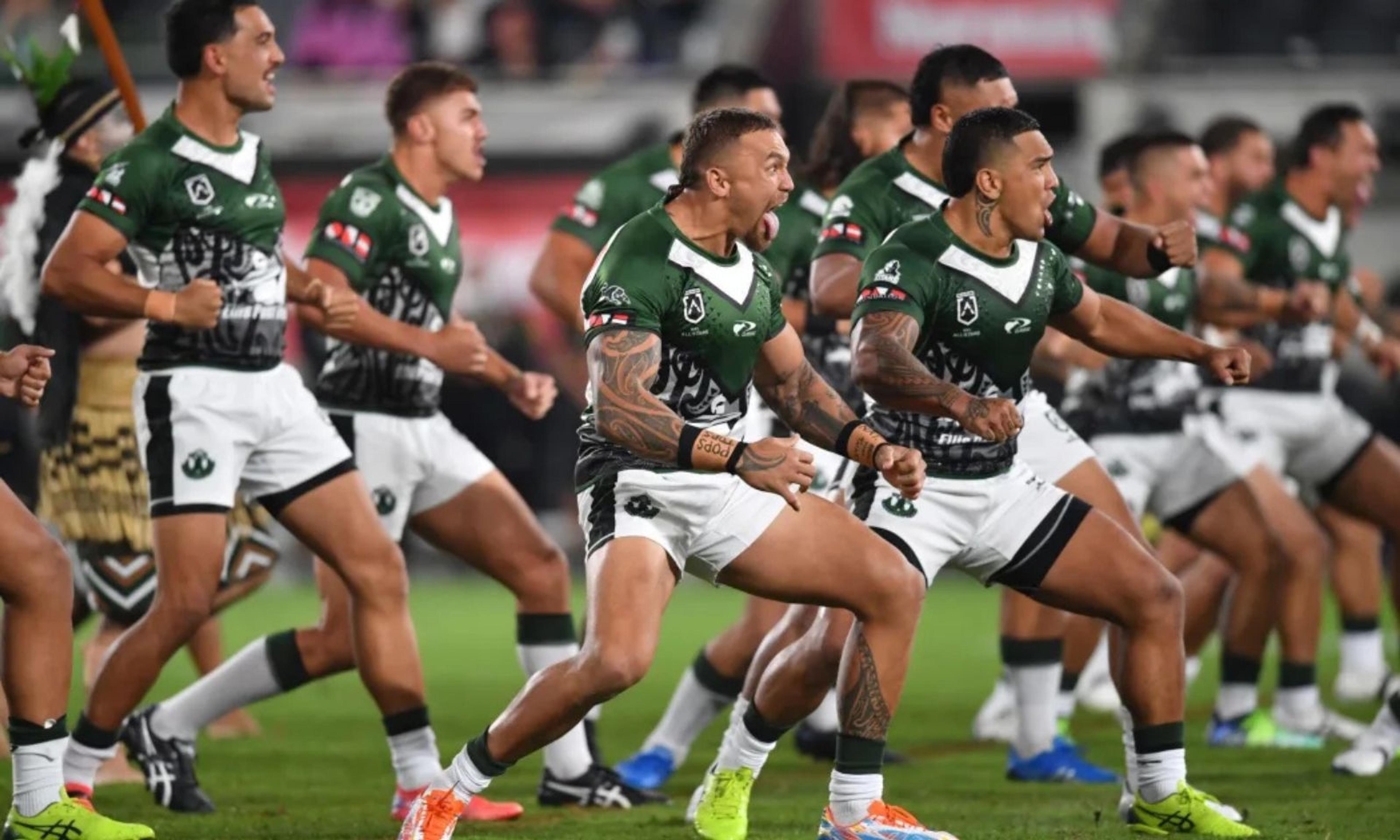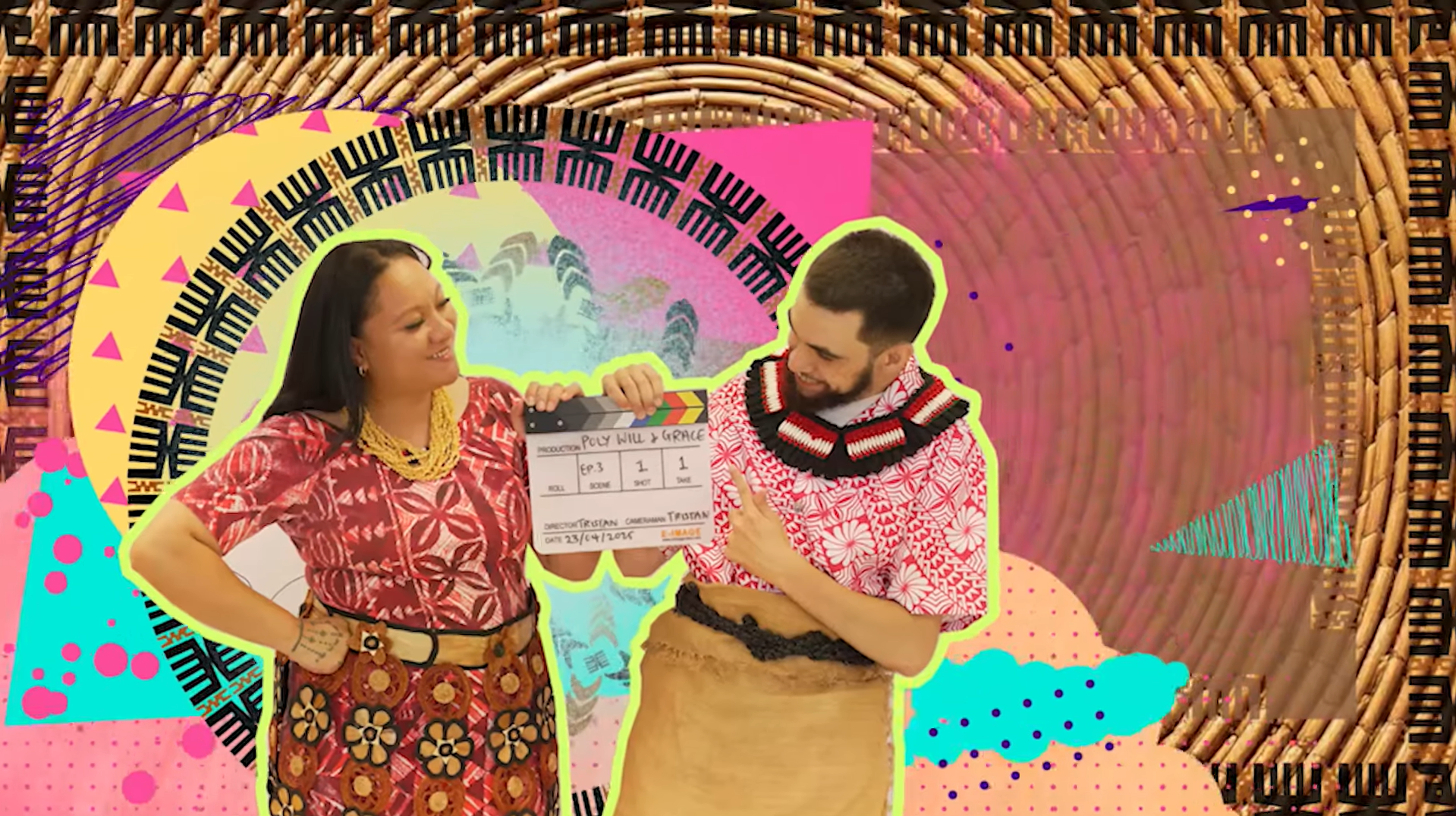

A heartfelt Pasifika vodcast where Will and Grace navigate the intersections of disability, culture, and community, sharing stories that inspire understanding, inclusion, and change.
Photo/Screenshot/Centre for Pacific Languages
Poly - Will and Grace: From car chats to voices from the heart
Real stories of our Pacific disabled community are being shared through a new four-part vodcast series by William Sangster and Grace Tinetali-Fiavaai.

Time for an Indigenous State of Origin? The All Stars game shows who really powers the NRL



An idea for a vodcast series originated from car rides where Te Rito journalism alumni William Sangster and Grace Tinetali-Fiavaai engaged in “deep and meaningful” conversations about life.
The inspiration grew into a four-part vodcast series titled Poly- Will and Grace, which aims to amplify the voices of Pacific disabled communities andshed light on their untold struggles and triumphs.
Funded by the Moana Reo Fund and produced by the Centre for Pacific Language, the series brings Sangster, and Tinetali-Fiavaai’s vision to life.
PMN News caught up with the duo to discuss the importance of authenticity and how sharing these stories could impact the lives of Pacific families both with and without disabilities.
First, let us introduce Will and Grace:
William: I’m 27, and I’m European-Tongan, from the villages of Lapaha and Vaini - haha, Vaini poto if you know, you know! I’m a videographer and editor working at The DList*, which is an online magazine and community platform that celebrates disability culture.
I love making people smile and laugh - and I love bringing stories to life. And lastly, I have cerebral palsy.
Grace: I’m a proud Sāmoan, Niuean, Tongan, and Chinese woman, raised with strong family and faith values as a faife’au’s daughter. I’m a wife and mum of two, juggling whānau life with my love for storytelling.
Before journalism, I worked as a flight attendant for Virgin Australia NZ and Sāmoa Airways, which kept me connected to our region and people. I spent part of my childhood in Jamaica, rich in rhythm and resilience, but also shaped by the lingering effects of apartheid.
I still remember being bitten on the forehead because of my skin colour. That moment shaped how I see identity, justice, and belonging. Now based in Aotearoa, I’m a journalist with RNZ Pacific.
Where did the idea for Poly - Will and Grace come from, and why focus on stories from the disabled community?
Will: Me and Grace originally wanted to do a podcast about my story, inspired by our car ride chats when we were cadets in Te Rito. But over time, the idea grew into something bigger - something that reflects the daily lives of our Pacific disabled community.
We wanted to show the barriers we face in government systems and workplaces, but also highlight the fun stuff - the roast sessions with family, the goofy little moments - all the realness that makes our lives relatable and full of heart.
Grace: Every morning and every day after work, Will and I would have these deep and meaningful conversations that no one would ever know of. We thought this could be turned into something. People just see Will for having this disability, but behind Will, there's a facet of different walls.
We share honest, unfiltered conversations about culture, identity, and navigating life as proud Pacific storytellers.
Why are stories like this important to tell?
Will: These stories are just scratching the surface of our rich Pacific disabled community. The more we share our stories - and the more they’re told by us - the better the world will understand.
My late Papa used to say to me in Tongan, “Alu ki tu‘a pea ke hoko ko koe.” Which means, “Go out and be yourself.”
I want this series to reflect who we really are - not some version shaped by the mainstream, but something authentic and grounded in truth.
What do able-bodied people often misunderstand when interacting with disabled communities?
Grace: I think because of my own role as a mother, I'm quite nurturing and stuff like that. So when I got to meet Will, we just connected and clicked on day one. It was like, ‘hey, I'll just pick you up’. Our first car ride was kind of awkward, but we got over that hurdle.
I was quite afraid of hurting Will’s feelings or like I wanted to speak for him. That's one thing I've learned from Will is that disabled people don't want you to speak on their behalf. They want to be heard. They don't want to be treated like little kids or like they're unable to do things.
And also the banter. If you've met his family and his friends, his circle of friends, Will is, you know, he's really good with the banter.
Will: That we’re human beings before anything else. Being outside of the mainstream media spotlight, I’ve noticed how disabled people are often viewed as “inspiring” - but most of the time, we’re just people trying to live our lives.
Treat us like individuals. Be kind. Be understanding. That’s all we ask.
What did you learn creatively while making the series?
Will: I learned so much from our hardworking, passionate team. They always respected my boundaries, especially around avoiding pity and making sure the series didn’t fall into “inspiration porn” territory.
One of the biggest things I took from this process was learning to be patient, to take our time, and do things the right way.
Grace: Don’t work with your friends, no, I’m joking. I think an idea that we had, we just ran with it without planning properly. But it was good because with anything unplanned, you need to learn from it, and then from there, you grow.
We had Josie and Tristan, who are quite young as well, learning. It was really good to be amongst a group of youth who had one vision, and all were there to kind of learn and be on the same journey with us. As producers now, if Will and I take on Season Two, we’ve learned from this production and can go forward.

The dynamic duo, Poly - Will and Grace. Photo/Screengrab/CPL
What impact are you hoping Poly - Will & Grace will have?
Will: I’m not thinking so much about “impact” - but more about connection.
I hope this content helps our Pacific disabled community see themselves reflected in the world and feel less alone. I want families and the wider Pacific community to see that having a disability is something that should bring us together - something we can support and celebrate, not hide or feel shame about.
Grace: When someone is born with a disability, straight away, for example, in the Pacific community, it's like, what did your parents do wrong? Or you’re cursed. It's just breaking down the barriers and breaking down that stigma that having a disability is not because of those reasons.
New episodes of Poly - Will and Grace release every Friday on www.pmn.co.nz. Watch the first episode here.